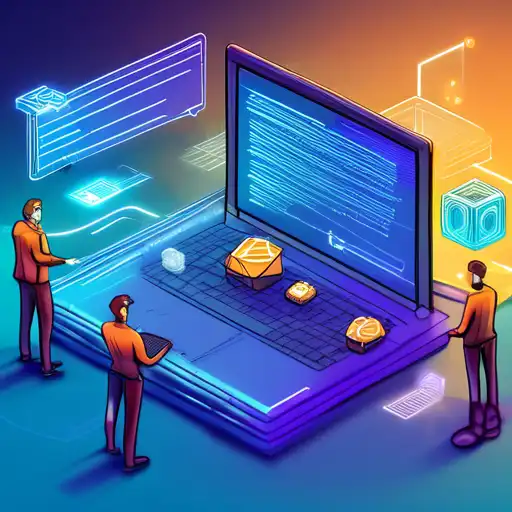Introduction to Smart Contracts
Smart contracts represent a pivotal innovation in blockchain technology, automating agreements without the need for intermediaries. These digital contracts execute transactions automatically when predetermined conditions are met, ensuring trust and efficiency in decentralized environments.
How Smart Contracts Work
At their core, smart contracts are self-executing contracts with the terms of the agreement directly written into code. They run on blockchain networks, making them immutable and distributed. This means once a smart contract is deployed, it cannot be altered, and its execution is transparent to all parties involved.
Benefits of Smart Contracts
- Trust and Transparency: Since smart contracts are executed on a blockchain, all actions are visible to all parties, eliminating the need for trust.
- Security: Blockchain's cryptographic nature ensures that smart contracts are secure against fraud and hacking.
- Efficiency and Speed: Automating contracts removes the need for manual processing, significantly reducing the time and costs associated with traditional contracts.
- Accuracy: By eliminating human intervention, smart contracts reduce the risk of errors in contract execution.
Applications of Smart Contracts
Smart contracts find applications across various sectors, including finance, real estate, healthcare, and more. For instance, in the finance sector, they can automate payments and settlements. In real estate, they can streamline property sales and rental agreements.
Challenges and Considerations
Despite their advantages, smart contracts face challenges such as legal recognition, scalability issues, and the complexity of coding. It's crucial for developers to ensure the code is flawless, as bugs can lead to significant losses.
Future of Smart Contracts
The future of smart contracts is intertwined with the evolution of blockchain technology. As the technology matures, we can expect wider adoption, more sophisticated applications, and integration with other emerging technologies like AI and IoT.
Conclusion
Smart contracts are revolutionizing how we think about agreements and transactions in the digital age. By leveraging blockchain technology, they offer a secure, efficient, and transparent way to execute contracts. As the technology continues to evolve, the potential applications of smart contracts are limitless.
